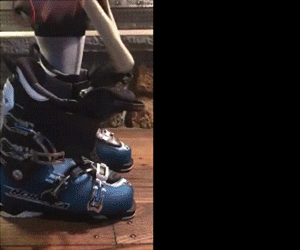Moongidget
Angel Diva
So, I have this problem. I don't know if its only me, but it doesn't seem to affect other people I ski with, or at least to the degree it does me.
After every overnight ski trip, my face swells up and gets puffy. It doesn't hurt or anything, and throughout the morning it kinda goes away, until the next morning. Each subsequent day of the same trip, my face gets puffier and puffier. By day four, my face is so puffy, my eyelids are all gross and I'm certain strangers can tell something is wrong with me.
When I ski, I pretty much ski all day. I do take a Camelbak, and some days I completely drain it. After skiing, I do enjoy wine or another alcoholic drink, but I never drink enough to regret the following day.
It takes about 2 nights sleeping at home before the morning swelling goes away.
Any ideas?
Also, I had Lasik a few years back and this problem was 10X worse when I wore contacts all the time.
After every overnight ski trip, my face swells up and gets puffy. It doesn't hurt or anything, and throughout the morning it kinda goes away, until the next morning. Each subsequent day of the same trip, my face gets puffier and puffier. By day four, my face is so puffy, my eyelids are all gross and I'm certain strangers can tell something is wrong with me.

When I ski, I pretty much ski all day. I do take a Camelbak, and some days I completely drain it. After skiing, I do enjoy wine or another alcoholic drink, but I never drink enough to regret the following day.
It takes about 2 nights sleeping at home before the morning swelling goes away.
Any ideas?
Also, I had Lasik a few years back and this problem was 10X worse when I wore contacts all the time.




